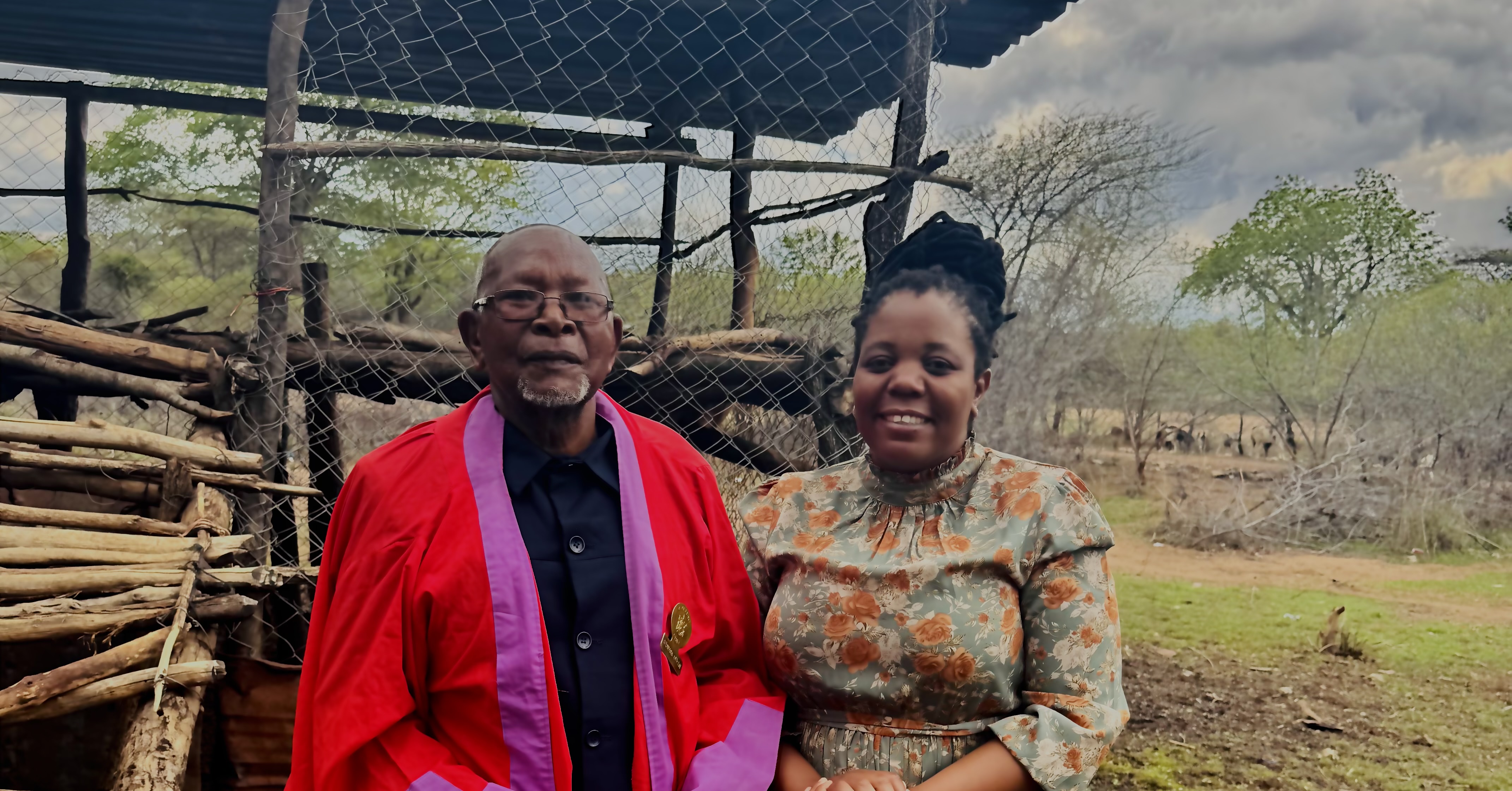BY NOKUTHABA DLAMINI
Deep in the dry plains of Hwange-Mabale, villagers say life has become a daily battle for survival — not only against the long distances they walk to fetch water, but also against the wildlife that roams the same paths their children must use to reach school.
During a visit by VicFallsLive, Chief Nelukoba- Dingani of Mabale painted a dire picture of a community caught between environmental hardship and the realities of living inside a wildlife corridor.
“We have no water up to Gwayi — we are suffering.”
Standing beside a recently drilled, but completely dry borehole shaft at his homestead, Chief Nelukoba said the area’s water table has drastically dropped, leaving families without reliable access to drinking water.
“We have tried drilling many times. The latest borehole went down almost 100 metres — still, nothing,” he said.
“People here are suffering. To get water, some walk more than five kilometres every day.”
The chief said several homesteads have abandoned shallow wells that dried up as temperatures soared and rainfall patterns shifted.
The water crisis is compounded by the fact that the community sits directly along a wildlife corridor used by elephants, lions and hyenas moving between protected areas.
Behind some homesteads, fresh elephant dung and large footprints are a daily reminder of how close danger is.
“These animals are always here,” said Chief Nelukoba. “Elephants are killing people, hyenas are killing livestock, and lions are hunting in our villages.”
He recalled a particularly devastating attack at his own homestead.
“In one night, I lost eight cattle and 16 goats. They were all taken from the kraal. This is what my people face often.”
Perhaps the most heartbreaking part of the chief’s concerns is the danger faced by school-going children.
Learners from the area walk between 5 and 10 kilometres to reach Nabushome High School.
“Children meet lions on the way. Sometimes they have to run back home,” he said.
“How can they learn in fear? How can they grow when they are not safe?”
“Conservation must benefit the people living with wildlife.”
Chief Nelukoba stressed that communities bearing the burden of wildlife presence should also receive the most support.
He urged conservation authorities and organisations to prioritise basic needs such as water, safe routes to school, and security for villagers and livestock.
“We support conservation. But conservation must also support us,” he said.
“We need water sources. We need protection from these animals. Rural people living with wildlife must not be forgotten.”
For Chief Nelukoba, the message is simple but urgent:
“Let conservation policies bring safety and dignity to our people.”

 Slider3 years ago
Slider3 years ago
 National4 years ago
National4 years ago
 Tourism and Environment4 years ago
Tourism and Environment4 years ago
 Special reports4 years ago
Special reports4 years ago
 Opinion4 years ago
Opinion4 years ago
 National4 years ago
National4 years ago
 National3 years ago
National3 years ago
 National3 years ago
National3 years ago


